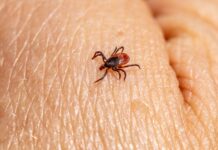The adult human body contains hundreds of different cell types, from the light sensitive cells in your eye, to the beating cells of your heart, to the smooth muscle cells lining your stomach. All of these cell types come from just a few cells within the developing embryo – the pluripotent stem cells. Think of them as the earliest common ancestor in your cell family tree. But what determines which cell type is formed? This is the question that Gordon Keller, a Professor at the University of Toronto and Director of the McEwan Centre for Regenerative Medicine, is trying to answer.
“It’s our mission to figure out how to direct these [pluripotent stem] cells to make the cell type we want, and that’s really come a long way in the last 3-4 years.”
Pluripotent stem cells were often considered controversial since they could only be isolated from a human embryo, but these ethical issues were virtually eliminated with the discovery that cells can be reprogrammed by Prof. Shinya Yamanaka in 2006.
“This reprogramming technology is probably one of the latest tools in the toolbox” says Keller, “we can take a cell from anybody in this room, anybody in the world, reprogram it back through genetic tricks to a pluripotent cell.” In this way, you could start from a skin cell and end up with many different cell types that are a genetic match to the donor.
The information gathered from these cells can then be used to study and direct the treatment of various diseases including heart disease, diabetes, and blood diseases.
“You might imagine a day where people don’t need to take insulin anymore because we can make new insulin producing cells and replace them,” explains Keller. There would be no fear of immune rejection because the cells came from the patient themselves.
These patient-specific cells can also be used for drug testing to devise personalized and unique drug treatments that we know will be effective for that patient.




































